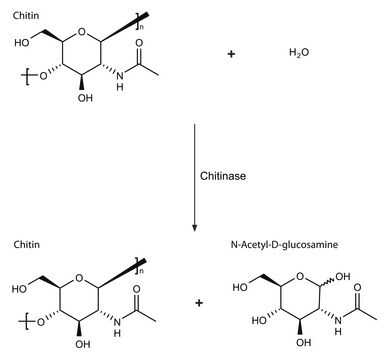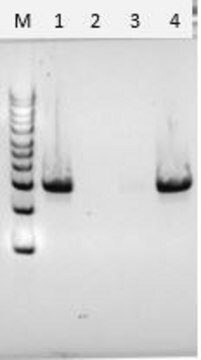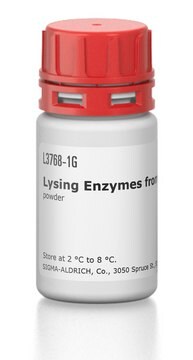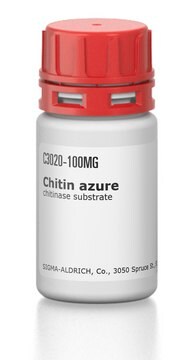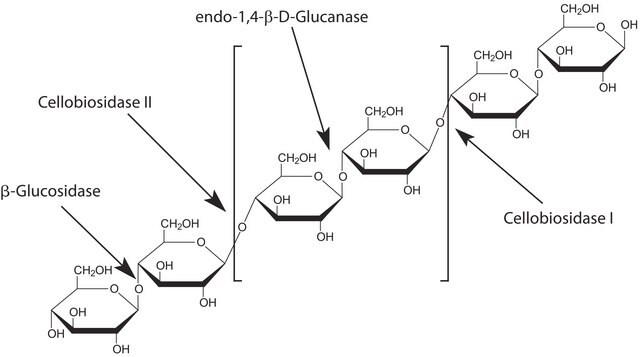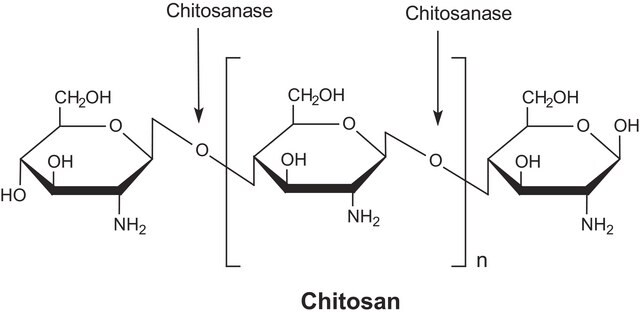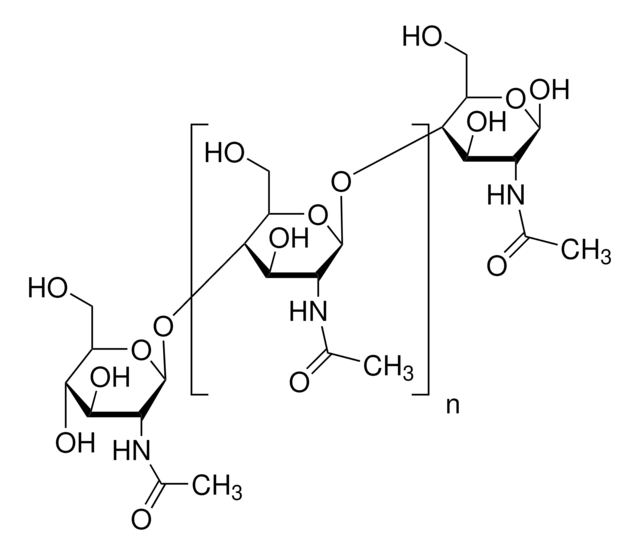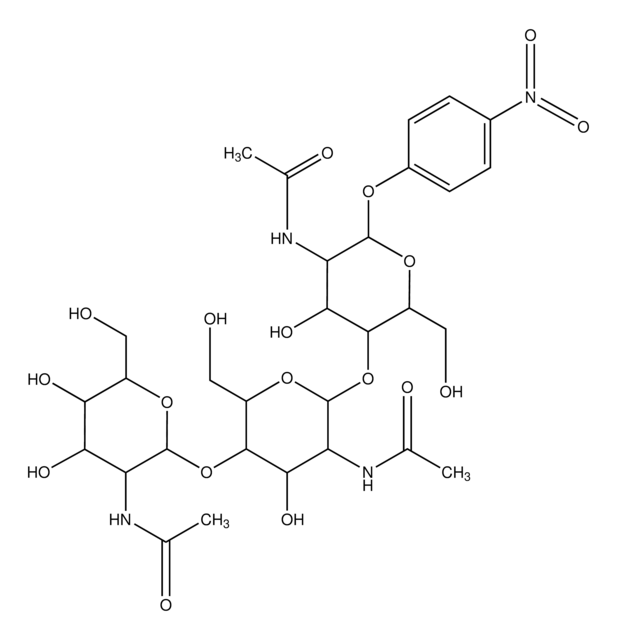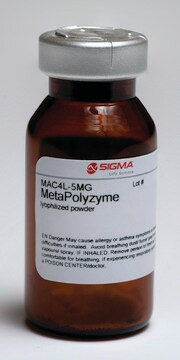C8241
Chitinase from Trichoderma viride
lyophilized powder, ≥600 units/g solid
Synonyme(s) :
N-acetyl-β-glucosaminidase and chitodextrinase
About This Item
Produits recommandés
Forme
lyophilized powder
Niveau de qualité
Activité spécifique
≥600 units/g solid
Poids mol.
30 kDa
Solubilité
0.05 M phosphate buffer, pH 6.0: soluble 0.90-1.10 mg/mL, faintly hazy to hazy (with particles)
Conditions d'expédition
wet ice
Température de stockage
−20°C
Description générale
The enzymatic hydrolysis of chitin to N-acetyl-D-glucosamine involves two consecutive enzyme reactions:
- The first reaction, chitodextrinase-chitinase, is a poly(β-(1→4)-[2-acetamido-2-deoxy-D-glucoside])- glycanohydrolase, which removes chitobiose units from chitin.
- The second activity is N-acetyl-glucosaminidasechitobiase, which cleaves the disaccharide to its monomer subunits, N-acetyl-D-glucosamine.
Application
Human health care: Asthma.
Pharma: preparation of chitooligosaccharides and N-acetyl D glucosamine,
Preparation of single-cell protein
Isolation of protoplasts from fungi and yeast
Control of pathogenic fungi
Treatment of chitinous waste, mosquito control and morphogenesis
Actions biochimiques/physiologiques
Caractéristiques et avantages
Définition de l'unité
One new 1 hour unit = approx. 50 old 48 hour units.
Autres remarques
Mention d'avertissement
Danger
Mentions de danger
Conseils de prudence
Classification des risques
Resp. Sens. 1
Code de la classe de stockage
11 - Combustible Solids
Classe de danger pour l'eau (WGK)
WGK 3
Point d'éclair (°F)
Not applicable
Point d'éclair (°C)
Not applicable
Équipement de protection individuelle
Eyeshields, Gloves, type N95 (US)
Certificats d'analyse (COA)
Recherchez un Certificats d'analyse (COA) en saisissant le numéro de lot du produit. Les numéros de lot figurent sur l'étiquette du produit après les mots "Lot" ou "Batch".
Déjà en possession de ce produit ?
Retrouvez la documentation relative aux produits que vous avez récemment achetés dans la Bibliothèque de documents.
Les clients ont également consulté
Notre équipe de scientifiques dispose d'une expérience dans tous les secteurs de la recherche, notamment en sciences de la vie, science des matériaux, synthèse chimique, chromatographie, analyse et dans de nombreux autres domaines..
Contacter notre Service technique